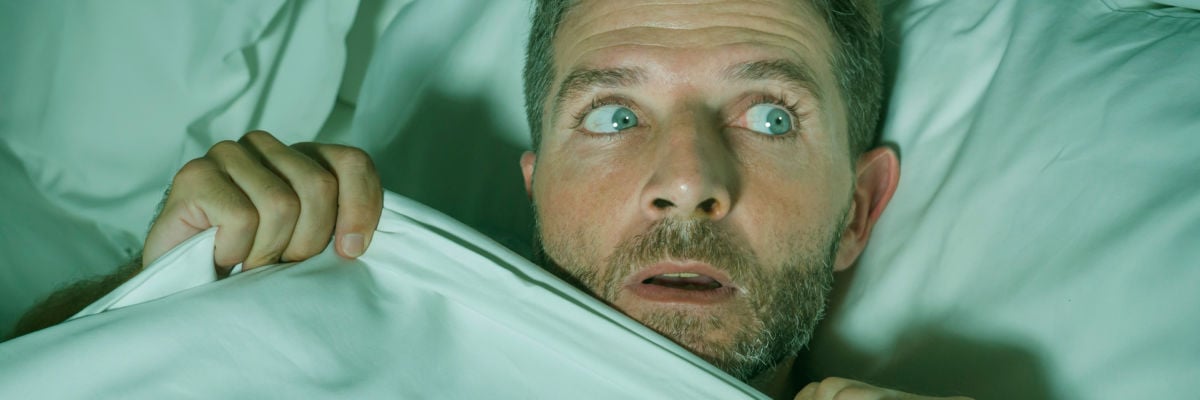
A conversation between a Connecticut public school administrator and an undercover representative of Project Veritas pretending to be a journalist—in which the assistant principal of Cos Cob School asserted that he preferred not to hire Catholics—has attracted national news attention for its alarming example of anti-Catholic prejudice. When asked what he does when he discovers an applicant to be a Catholic, assistant principal Jeremy Boland declared, “You don’t hire them.” He explained that “hardcore Catholics” are “brainwashed” and “just stuck real rigid.” (Boland was subsequently placed on administrative leave).
In one sense, it’s not terribly surprising that public school administrators like Boland would be opposed to Catholics in the workplace. Many public schools have become laboratories for radical gender, sexual, and racial ideologies that have little to do with the kind of curriculum students will actually need to succeed in the world. Catholic teachers who believe that gender is static, prepubescent children should not be learning about sex, and children of all races should be treated equally are not going to be good fits in many “modern” classrooms.
But it’s also not exactly a secret that academic standards in public schools are in decline, while disciplinary problems are on the rise. Test scores in elementary school math and reading plummeted to their lowest levels in decades, according to the first nationally representative report comparing pre-pandemic student achievement to performance two years later. Children are reading less, a problem exacerbated by school closures stemming from the pandemic. Much of this (and the manifold detrimental consequences) have been covered in extensive—and often painful—detail by Catholic revert Mark Bauerlein in his books The Dumbest Generation and The Dumbest Generation Grows Up. The more that schools deviate from reading, writing, and math standards—and instead focus on turning classrooms into ideological listening sessions and social activism training camps—the less we should expect of the intellectual formation students receive.
Therein lies the sad irony: public schools administrators view Catholics as an obstacle to learning, but Catholics might very well be their best hope for maintaining a patina of intellectual coherence and respectability for their academic institutions. That is because, as even a brief consideration of the Catholic faith easily proves, the Catholic Church teaches the principles and values that are essential to the survival of American education.
Let’s start with the simple fact that the Church teaches that there is such a thing as absolute truth, and that it is knowable. “Truth is rightness, perceptible by the mind alone,” explains St. Anselm. Now, you may disagree with what the Church includes under the banner of absolute truth—such as God or the Incarnation—but her belief in absolute truth is mighty helpful when learning spelling or your times tables. Claims that math or proper grammar is somehow racist are antithetical to the Catholic tradition, which recognizes that without absolutes in such subjects as mathematics and grammar, our ability to understand any reality collapses.
The Church’s embrace of absolute truth also extends to ethics—there are right and wrong behaviors, and we should encourage the former and discourage the latter. “The dignity of the human person implies and requires uprightness of moral conscience,” teaches the Catechism of the Catholic Church (1780). Again, you might disagree with certain elements of Catholic moral teaching (perhaps on sexuality), but proper moral formation goes quite a long way to curbing disciplinary problems in the classroom. The Church teaches respect for authority, love of neighbor, and justice, all necessary to the proper running of a school.
Finally, the Church teaches that our actions have temporal and eternal consequences. “Any good or evil, done to the member of a society, redounds on the whole society,” writes St. Thomas Aquinas (Summa Theologiae, II-I, Q. 21, a. 3). “A good or evil action deserves praise or blame,” he adds. Once more, you may not believe in the transcendent component to Catholic morality, but it’s mighty helpful to have Catholic educators (and students) who believe that their deeds are judged according to their effect on others and their conformity to eternal truth. Conscientious Catholics will no doubt still err, but that they are conscientious means they seek moral improvement, both for their own souls and for the good of their neighbor.
I’m only scratching the surface with these cursory comments regarding Catholics in the public square. Indeed, we have quite literally millions of examples of Catholics whose public practice of their faith has resulted in temporal benefits to all Americans, regardless of their religious affiliation. Just ask anyone who has been served by a Catholic doctor or nurse, helped by a Catholic charitable worker, or protected by a Catholic police officer or fireman. Indeed, many of the institutions we take for granted—such as hospitals and universities—have their origins in Catholicism. The Church is even responsible for science as we practice it today.
Mr. Boland and the rest of his anti-Catholic cohort in public education wouldn’t even have a school without the Catholic Church. He thinks Catholics are bad for business . . . but the business exists (and is in many respects preserved) because of Catholics. There are millions of Catholic students and thousands of Catholic teachers in public schools, and I have little doubt that many of them serve as the gum and toothpicks that keep many of our nation’s school systems together. Even those Catholics who aren’t the devout, regular Mass-attending, rosary-praying type have been inculturated into a tradition that prizes truth, service, and charity.
Public schools are in trouble. “Enrollment is down. Absenteeism is up. There aren’t enough teachers, substitutes or bus drivers,” the Washington Post observed earlier this year. I don’t think the solution will be to keep Catholics out. But keeping anti-Catholic ideologues like Boland out might help. Or at least mandate that disciplinary action and mediation include attendance at a nearby RCIA. Classes are starting soon, I hear.



